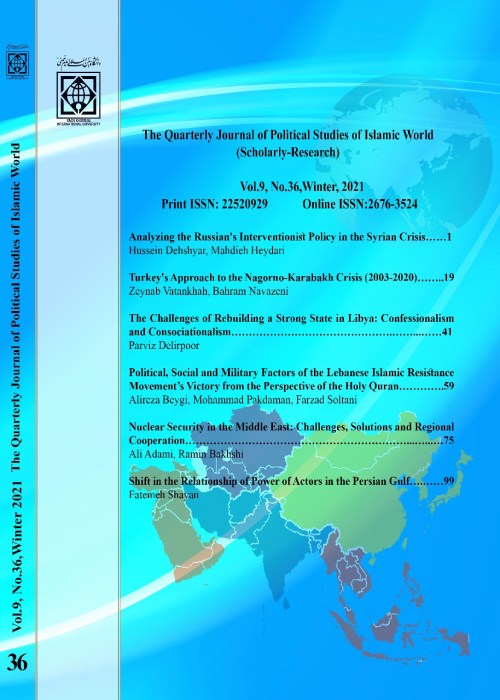The Causes of Popular Interactions and Conflicts with ISIS in Iraq
The purpose of this study is to identify the reasons for the adoption of two conflicting approaches of the Iraqi people (interaction-confrontation) in the face of ISIS through an objective and field study.
In this qualitative study, the researcher, using the method of Grounded theory, and by attending places in Iraq where ISIS was active, while communicating and interviewing people, sought to answer this question: What are the causes of interactions and conflicts between Iraqi Sunni Arabs and ISIS?
According to the findings of this study, Sunni Arabs' attachment to power and past privileges and unwillingness to adopt new government conditions and maintain national cohesion based on parliamentary elections, as well as improper Shiite rule over the failed government during the occupation of Iraq, are among the factors of disintegration and growing hatred in Iraq. These factors led to interaction with ISIS. In practice, the ISIL government increased the pressure and restrictions on the people of the occupied territories, and the invasion of family privacy and the threat and injustice against the people provided the ground for confrontation with ISIL. In addition, the intervention of regional and supra-regional countries was influential in the intensity and weakness of this conflicting action.
The existence of the conflicting archetype of "Shiites against Sunnis" is involved in intensifying the internal crises of Islamic and Arab countries. Iraq is no exception. In the critical situation in Iraq, the existence of this conflicting archetype turned the central factors of interaction with ISIS in Iraq into a stimulus for causal factors such as hopelessness for the future, hatred of Shiism among some Sunni Arabs, loss of past rule, and so on. The conditions for the intervention of regional and supra-regional powers to gain benefits by influencing the events in Iraq and ethnic, religious and racial rivalries have also potentially delayed the process of nation-building and political stability in Iraq.
Iraq , ISIS , conflict , Interaction , grounded theory
- حق عضویت دریافتی صرف حمایت از نشریات عضو و نگهداری، تکمیل و توسعه مگیران میشود.
- پرداخت حق اشتراک و دانلود مقالات اجازه بازنشر آن در سایر رسانههای چاپی و دیجیتال را به کاربر نمیدهد.




